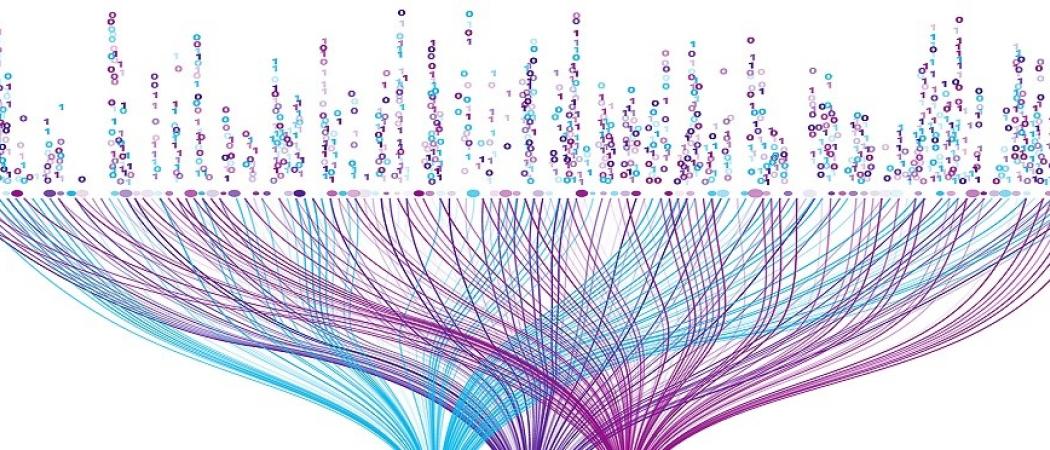A flurry of cooperation projects has enabled Europe’s main life sciences research data infrastructure ELIXIR, to team up with EMBL’s bioinformatics institute and work together on building an EU health data space

A surge in the generation and use of cross-border health data for research in the coronavirus pandemic is boosting EU efforts to digitise health research and care, as a stepping stone to improving the response to future health crises.
A flurry of cooperation projects has enabled Europe’s main life sciences data infrastructure ELIXIR, a body representing more than 220 research bodies, to team up with the bioinformatics institute of the European Molecular Biology Laboratory (EMBL-EBI), based in Cambridge. The two are working together to assess how to collect coronavirus research data and contribute to the EU’s plan to build a common health data space.
The pandemic has generated massive amounts of data from clinical trials and from national healthcare systems on the new disease. With the help of ELIXIR, the European Bioinformatics Institute (EMBL-EBI) has launched a COVID-19 data portal for coordinating data generated in the many research projects that started shortly after the pandemic began spreading from China. The data portal is part of a Horizon 2020 funded project.
“If anything, the pandemic shows the necessity of bringing together research data with data emanating from health systems across Europe,” Niklas Blomberg, director of ELIXIR told Science|Business.
The data portal brings together datasets submitted to EMBL-EBI and other major centres for biomedical data, allowing researchers to share and analyse data, accelerating research on COVID-19.
In parallel, ELIXIR and EMBL-EBI are working on bringing together national COVID-19 data platforms to create a network of federated data spaces. The project, also backed by a Horizon 2020 grant, is providing researchers with the computing resources needed to conduct reproducible and collaborative health research.
Blomberg said the pandemic has underlined Europe’s need for an infrastructure where researchers can find and compare health data which would help policy makers take better decisions in future crises. “We need to develop generally applicable methods that let researchers access relevant data across countries,” said Blomberg. “Data might have to stay where it originated but that doesn’t mean you can’t research on that data.”
There is a great deal of fragmentation in EU healthcare, and all the different jurisdictions are generating lots of data collected through different standards. The EU data space would allow information to be shared and used across countries. For Blomberg it’s very important to understand the diversity of Europe and its regional, national, private and public health systems. “One will need to find ways to work within that spectrum,” he said.
The EU health data space
Since 2018 the European Commission has been encouraging member states to implement digital health strategies that would let citizens have secure access to their electronic health data everywhere in the EU.
In 2019, for the first time, five member states began exchanging digital prescriptions and patient summaries. Over 5,000 prescriptions have been dispensed digitally, proving the EU could have continuity of care across borders. The commission has also adopted a recommendation on standards for health record exchange so that data can be shared across platforms.
As part of her brief, Stella Kyriakides, commissioner for health, is charged with fostering the creation of the EU Health Data Space.
Getting ready for future health crises
Guy Cochrane, team leader for data coordination and archiving at EMBL-EBI is in charge of the COVID-19 data portal. The portal builds on long standing efforts in bioinformatics, but the pandemic has accelerated the process. “We needed to move quickly,” said Cochrane.
Many components needed for an EU-wide exchange of health research data were in place. EMBL-EBI already had data flows set up and databases for biological targets, and thanks to another Horizon 2020 project it also had a working model for data hubs, based on a long-standing cooperation with the Erasmus Medical Centre in the Netherlands, the Eötvös Loránd University in Budapest and the Dutch national public health institute.
However, these systems were not ready to be deployed very quickly at the scale required by the coronavirus crisis. “A lot of the work was the coordination of different groups to work at high speed,” said Cochrane. “We needed things to happen within days, if not hours.”
EMBL-EBI was able to redeploy its experts in bioinformatics on coronavirus efforts, whilst putting other projects on hold. The experts were split in four teams working in parallel to mobilise available data, create the structure of the data portal and make it available through an online platform. “We were fortunate that research funders were flexible,” said Cochrane.
Cochrane reckons the effort made by the researchers now, with the patience of research funders, could have long term benefits across multiple disciplines and sectors. “The true impacts will come over time,” he said.
Cochrane said the ultimate goal of the joint effort is to help connect national health databases stemming from clinical trials and epidemiological modelling. “It’s important that this data is made available to the larger research community,” he said.
The progress so far is a “really good blueprint for a way forward and prepares Europe for upcoming pandemics,” Blomberg said.





 A unique international forum for public research organisations and companies to connect their external engagement with strategic interests around their R&D system.
A unique international forum for public research organisations and companies to connect their external engagement with strategic interests around their R&D system.